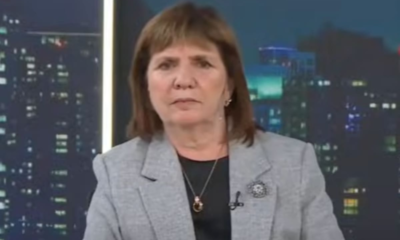INTERNACIONAL
India y Pakistán no libran guerras como otros países: aquí el motivo
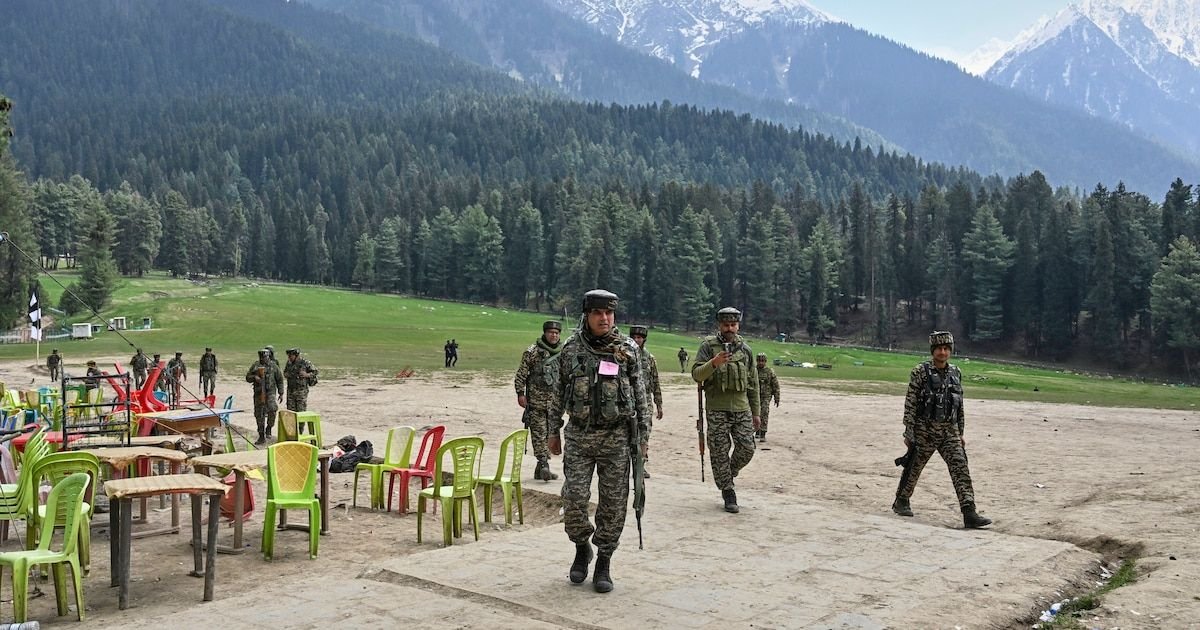
India y Pakistán han librado tres guerras a gran escala desde que obtuvieron la independencia de Gran Bretaña en 1947. También han tenido docenas de escaramuzas y conflictos, incluido uno en la cima de un glaciar considerado el campo de batalla más frío y de mayor altitud del mundo.
La última escalada se produce tras un ataque mortal con armas de fuego contra turistas que la India atribuye a Pakistán, aunque Islamabad niega cualquier relación. Pero no libran guerras como otros países.
El factor dominante es su arsenal nuclear, una forma distintiva de disuadir ataques importantes y una garantía de que los combates no se descontrolen, incluso cuando la situación se agrava.
A continuación explicamos cómo y por qué la India y Pakistán luchan de la forma en que lo hacen:
“Pakistán y la India tienen armas nucleares suficientes para aniquilar al otro varias veces”, afirma el analista de seguridad Syed Mohammed Ali, con sede en Islamabad, la capital pakistaní. “Sus armas nucleares crean un escenario de destrucción mutua asegurada”.

Ambos países han “desarrollado deliberadamente” el tamaño y el alcance de sus arsenales para recordar al otro la garantía de destrucción mutua asegurada, añade.
Ninguno de los dos países revela su capacidad nuclear, pero se cree que cada uno tiene entre 170 y 180 ojivas de corto, largo y medio alcance. Ambos países cuentan con diferentes sistemas de lanzamiento, es decir, formas de lanzar y propulsar estas armas hacia sus objetivos.
Los arsenales son una medida defensiva para prevenir y disuadir nuevos enfrentamientos, ya que “ninguna de las dos partes puede permitirse iniciar una guerra así ni esperar obtener nada de ella”, afirma Ali.

Aunque desde fuera pueda no parecerlo, las armas nucleares son un recordatorio para la otra parte de que no pueden ir demasiado lejos.
Sin embargo, el secretismo que rodea a sus arsenales hace que no esté claro si Pakistán o la India podrían sobrevivir a un primer ataque nuclear y tomar represalias, lo que se denomina “capacidad de segundo golpe”.
Esta capacidad impide que un adversario intente ganar una guerra nuclear mediante un primer ataque, al evitar agresiones que podrían conducir a una escalada nuclear.

Sin esta capacidad, en teoría, nada impediría que una de las partes lanzara un misil contra la otra.
India y Pakistán reclaman Cachemira desde 1947, cuando ambos países obtuvieron la independencia, y las escaramuzas fronterizas han generado inestabilidad en la región durante décadas. Cada país controla una parte de Cachemira, que está dividida por una frontera fuertemente militarizada.
Los dos archirrivales también han librado dos de sus tres guerras por Cachemira, una región disputada del Himalaya dividida entre ambos, donde insurgentes armados se resisten al dominio indio. Muchos cachemires musulmanes apoyan el objetivo de los rebeldes de unir el territorio, ya sea bajo el dominio pakistaní o como país independiente.

Los enfrentamientos fronterizos y los ataques militantes en la Cachemira controlada por la India han llevado a Nueva Delhi a adoptar una postura cada vez más dura con Islamabad, a la que acusa de “terrorismo“.
En el último conflicto, la India castigó a Pakistán atacando lo que, según ella, eran lugares utilizados por militantes respaldados por Pakistán y vinculados a una masacre con armas de fuego el mes pasado.
La India es uno de los países que más gasta en defensa del mundo, con 74 mil millones de dólares en 2025, según el informe Military Balance del Instituto Internacional de Estudios Estratégicos. También es uno de los mayores importadores de armas del mundo.
Pakistán no se queda atrás, con un gasto de 10 mil millones de dólares el año pasado, pero nunca podrá igualar los profundos bolsillos de la India. La India también cuenta con más del doble de efectivos en las fuerzas armadas que Pakistán.
Aunque las fuerzas armadas de la India se han centrado tradicionalmente en Pakistán, tienen otro vecino nuclear con el que lidiar, China, y están cada vez más preocupadas por la seguridad marítima en el océano Índico. Estos son dos factores que Pakistán no tiene que tener en cuenta en su paradigma de seguridad.
La forma alargada y estrecha de Pakistán, junto con el desmesurado papel del ejército en la política exterior, facilita el desplazamiento de las fuerzas armadas y la priorización de la defensa.
Ni Pakistán ni India tienen prisa por anunciar sus movimientos militares contra el otro y, como se ve en el actual recrudecimiento de las hostilidades, puede pasar un tiempo antes de que se confirmen los ataques y las represalias.
Pero ambos lanzan operaciones en territorios y espacios aéreos controlados por el otro. A veces, estas operaciones tienen como objetivo dañar puestos de control, instalaciones o lugares supuestamente utilizados por militantes.
También tienen como objetivo avergonzar o provocar, obligando a los líderes a ceder a la presión pública y responder, con el riesgo de cometer errores de cálculo.
Muchas de estas actividades se originan a lo largo de la Línea de Control, que divide Cachemira entre la India y Pakistán. Es en gran parte inaccesible para los medios de comunicación y el público, lo que dificulta la verificación independiente de las denuncias de ataques o represalias.
Estos incidentes despiertan la alarma internacional, ya que ambos países poseen capacidad nuclear, lo que vuelve a centrar la atención en la India y Pakistán y, en última instancia, en sus reivindicaciones sobre Cachemira.
El temor a una guerra nuclear ha situado a ambos países en el primer plano de la agenda, compitiendo con el cónclave papal, las políticas del presidente estadounidense Donald Trump y el juicio a Sean “Diddy” Combs en los titulares.
Las batallas y escaramuzas entre Pakistán y la India se libran lejos de la mirada del público.
Los ataques y las represalias se producen a altas horas de la noche o a primera hora de la mañana y, con la excepción de los ataques con drones del jueves, tienen lugar en su mayoría lejos de los centros urbanos densamente poblados. Esto demuestra que ninguno de los dos países desea causar daños significativos a la población del otro. Los ataques se describen como quirúrgicos o limitados.
Ninguno de los dos países está motivado por la competencia por los recursos. Pakistán tiene una enorme riqueza mineral, pero a la India no le interesa y, aunque existen marcadas diferencias ideológicas entre la India, de mayoría hindú, y Pakistán, de mayoría musulmana, ninguno de los dos busca controlar o influir en el otro.
Aparte de Cachemira, no tienen interés en reclamar el territorio del otro ni en ejercer su dominio.
conflict,defence,defence equipment,politics,unrest
INTERNACIONAL
Con menos tendencia «woke» y «más valores norteamericanos», Estados Unidos busca liderar la industria IA
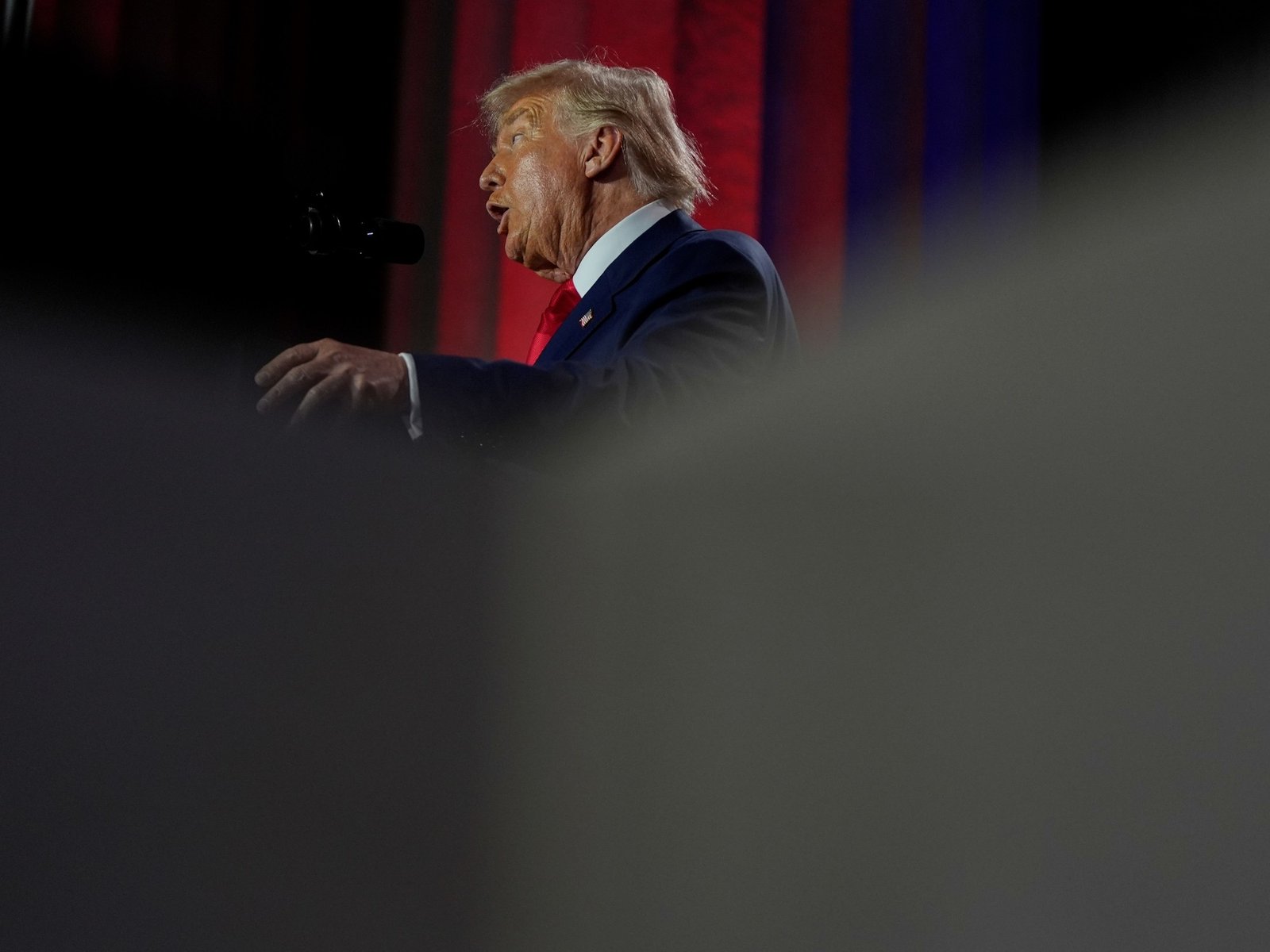
El anuncio de Donald Trump y el plan de acción desde la Casa Blanca
Inteligencia Artificial,Casa Blanca,Donald Trump,Estados Unidos,Últimas Noticias
INTERNACIONAL
Jewish leader predicts violent future for NYC residents if Mamdani wins in November: ‘Real concern’
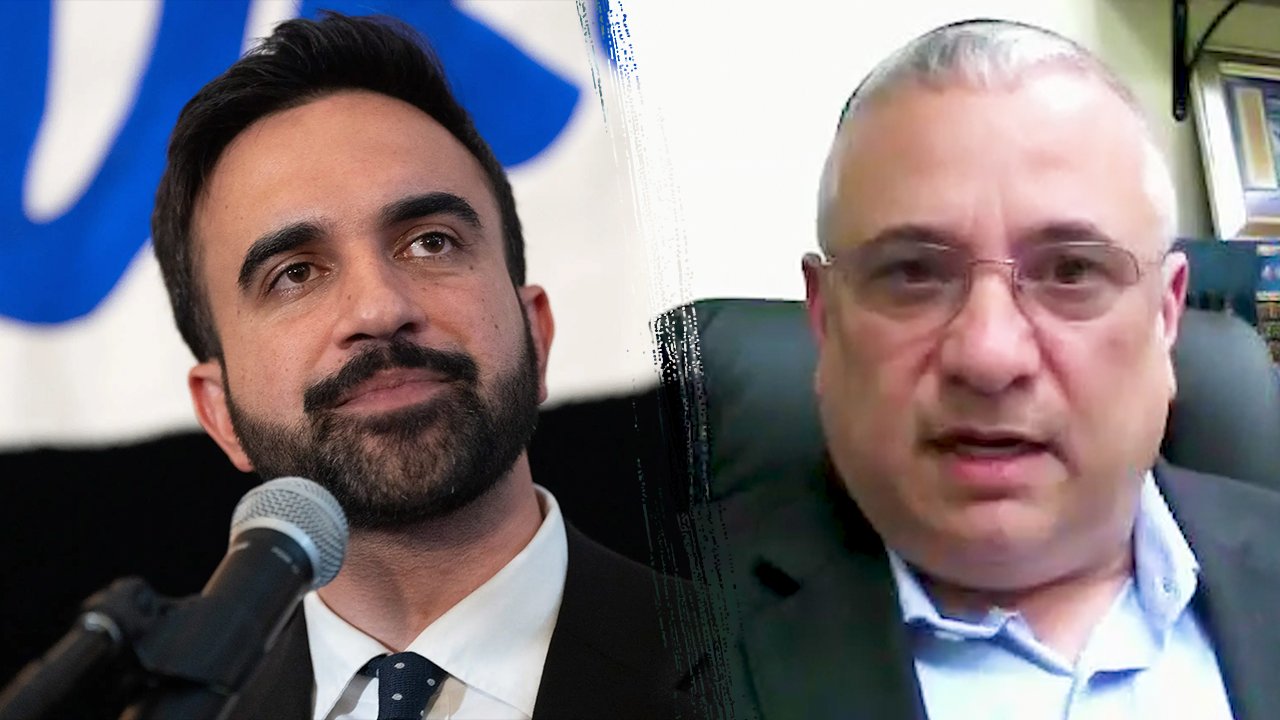
NEWYou can now listen to Fox News articles!
A New York City Jewish leader is speaking out about the possibility of a Zohran Mamdani term as mayor of New York City, telling Fox News Digital he is concerned about the safety of Jewish residents, as well as all New Yorkers.
Scott Feltman, executive vice president of the One Israel Fund, told Fox News Digital that the Jewish community in the country’s largest city is «not against» a Muslim or any person of faith running for office, but what they do oppose is candidates that «align themselves with nefarious actors» like Hamas or Hezbollah.
«He was just recorded at a local mosque where the Imam of that mosque has basically called for the death of IDF soldiers and praised the efforts of Hamas,» Feltman said. «So that’s what we’re opposed to, and it’s a very, very real serious concern.»
Feltman pointed to the rise of antisemitic attacks in recent years, particularly in New York City, which he says has «created a certain trepidation in the Jewish community and having this particular candidate now making such inroads» is a «real concern.»
UNEARTHED MAMDANI CLIP REVEALS HOW HIS UPBRINGING MADE HIM OPEN TO BEING CALLED ‘RADICAL,’ SOCIALIST
Fox News Digital spoke to One Israel Fund EVP about the rise of Zohran Mamdani in NYC. (Getty; Fox News Digital)
Two Israeli embassy staffers were killed in Washington, D.C., earlier this year by a man shouting «free Palestine» around the same time that an Egyptian man targeted a pro-Israel demonstration, killing one person and injuring several others, in Boulder, Colorado.
«I know that every single day I fear for my own staff knowing that our organization has been called out by this candidate, and we have no idea, you know, who’s following him and what their interests and what their actions may be. So it is a real serious concern.»
Mamdani, along with actress Cynthia Nixon, called out the One Israel Fund earlier this month in a post Feltman responded to with an article in American Thinker.
«When you go out and you align yourselves with terminology like globalize the intifada, which is basically a euphemism for kill Jews all over the world, that’s what it is, the intifada was basically a movement in Israel 25 years ago to destroy the state of Israel and didn’t discriminate against civilian or military personnel,» Feltman told Fox News Digital.
NYC COUNCILWOMAN WARNS MAMDANI VICTORY WILL DRIVE AWAY KEY VOTING BLOC: ‘AFRAID TO LIVE HERE’
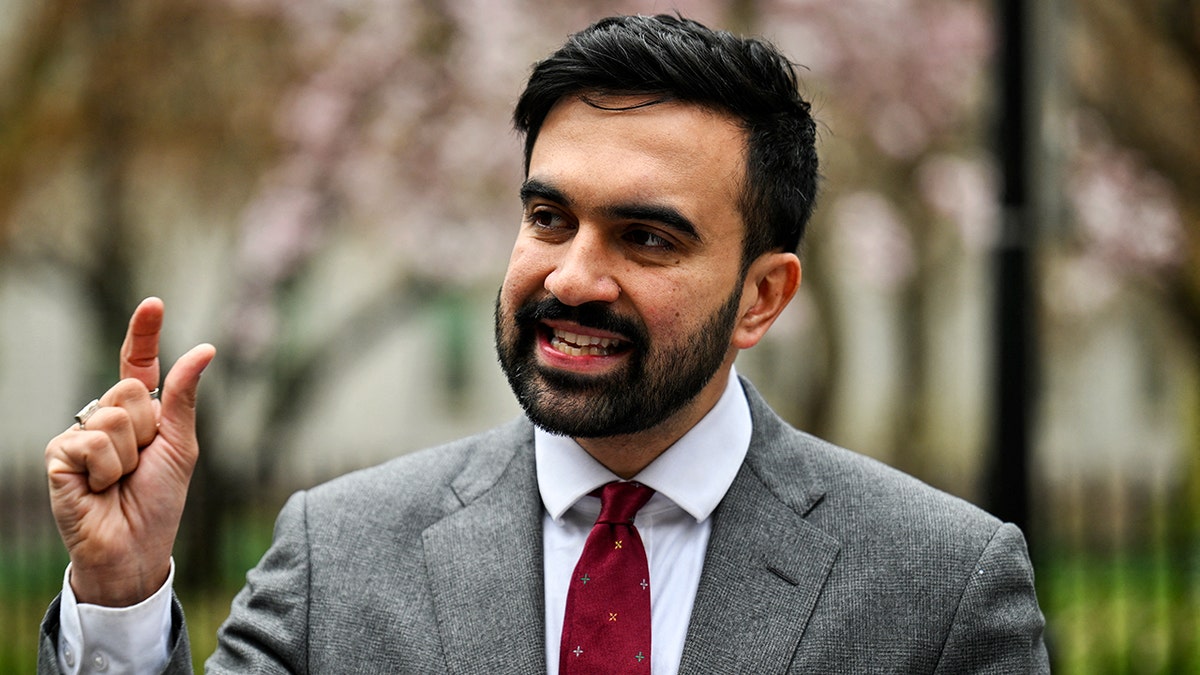
Zohran Mamdani campaigns in New York City on April 16, 2025. (Angela Weiss/AFP via Getty Images)
«And when you want to globalize that, the messaging is very clear to the people who are listening and following and that has put many people in the Jewish community, if not all of us, on notice and has created the feeling of genuine concern. I’m concerned for New York City in general. It’s not just the Jewish community. His platform of defunding the police and basically offering all kinds of free things to people, which I don’t think he can even accomplish, even though he keeps doubling down on the rhetoric, but just defunding the police puts everyone here in jeopardy.»
Mamdani has been widely criticized for his initial failure to condemn the phrase «globalize the intifada», which many Jewish people view as a call for violence. Mamdani eventually walked back his initial reluctance by saying he discourages people from using the phrase and told business leaders he would not use it.
CLICK HERE TO GET THE FOX NEWS APP
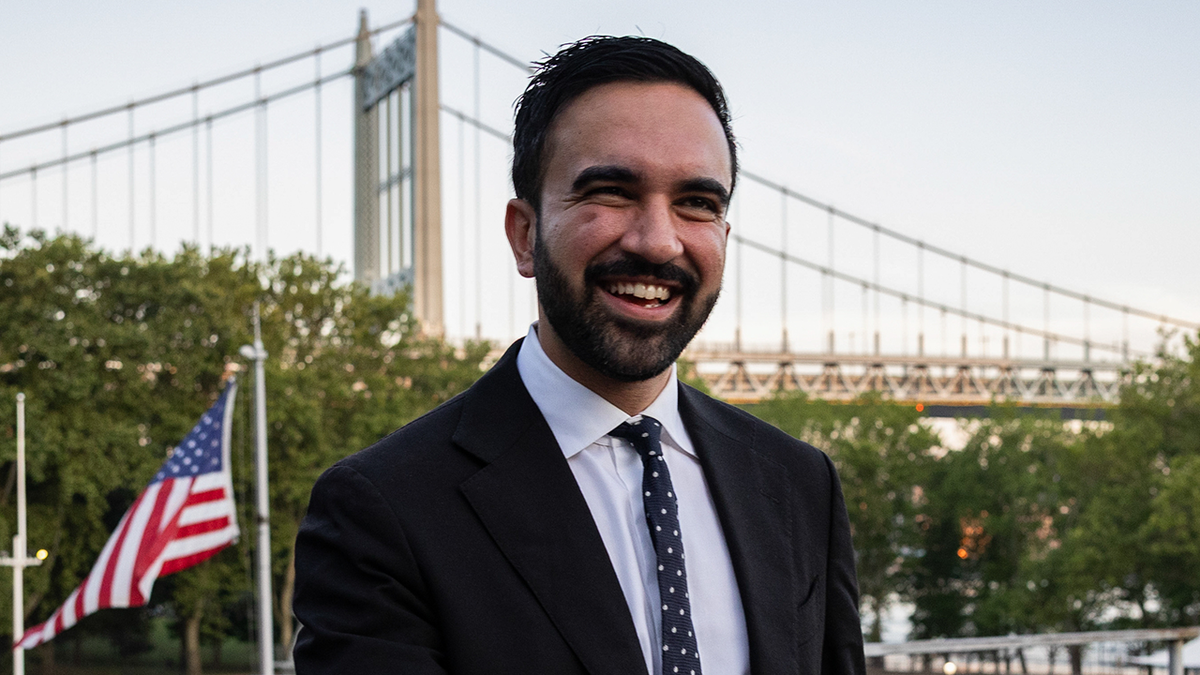
Zohran Mamdani arrives for a news conference at Astoria Park in the Queens borough of New York, on June 24, 2025. (Christian Monterrosa/Bloomberg via Getty Images)
Feltman referred to Mamdani as a «social media darling» and complimented the way he has been able to mobilize voters but said, ultimately, while discussing his rise, that the education system has done a «tremendous injustice to our children, especially on the university level where we see antisemitism exploding exponentially.»
Fox News Digital reached out to Mamdani’s campaign for comment.
INTERNACIONAL
UN court rules wealthy nations pay up for climate change damages in controversial global ruling
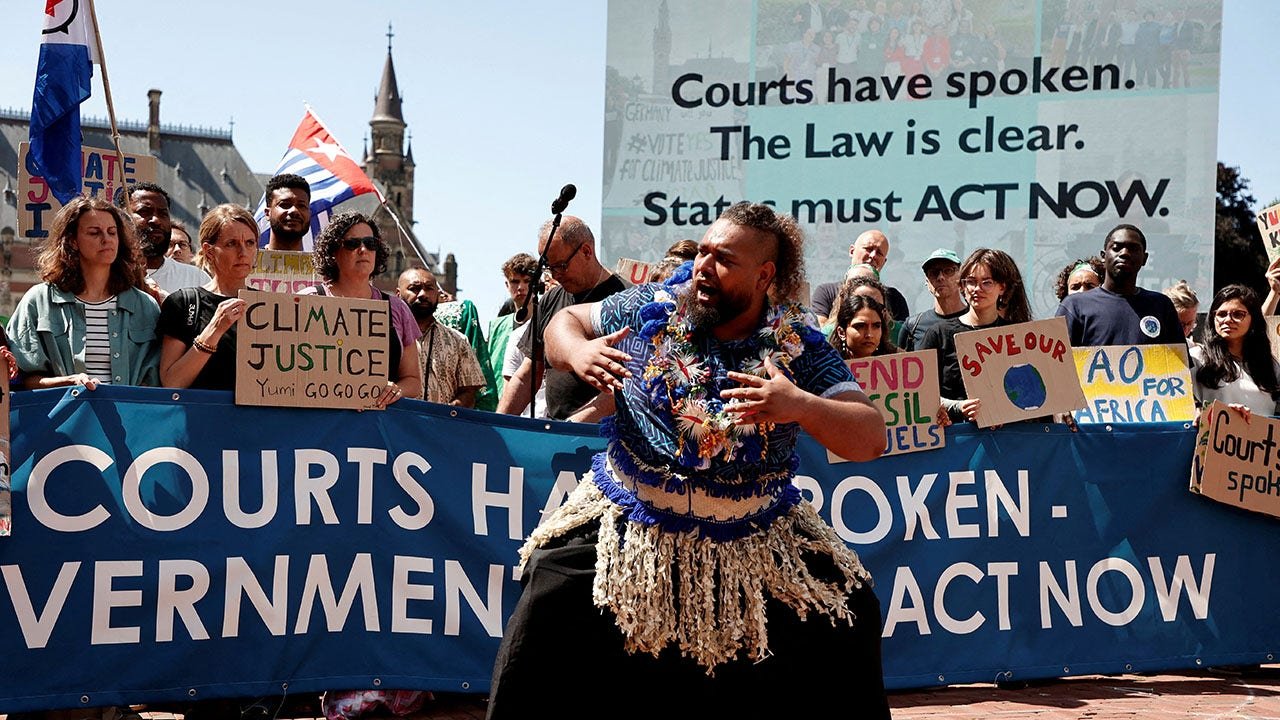
NEWYou can now listen to Fox News articles!
The United Nations’ highest court on Wednesday ruled that wealthy countries must comply with their commitments to curb fossil fuels and pollution or risk being held financially liable by nations hit the hardest by climate change.
The 15-member U.N. International Court of Justice said that treaties compel rich nations to curb global warming and that the countries were also responsible for the actions of companies under their jurisdiction or control, Reuters reported.
«States must cooperate to achieve concrete emission reduction targets,» Judge Yuji Iwasawa said at The Hague. «Greenhouse gas emissions are unequivocally caused by human activities which are not territorially limited.»
TRUMP CELEBRATES SUPREME COURT LIMITS ON ‘COLOSSAL ABUSE OF POWER’ BY FEDERAL JUDGES
Climate activists and campaigners demonstrate outside the International Court of Justice (ICJ) ahead of Wednesday’s opinion that will likely determine the course of future climate change at The Hague, Netherlands, July 23, 2025. (REUTERS/Marta Fiorin)
Failure to do so could result in «full reparations to injured states in the form of restitution, compensation and satisfaction provided that the general conditions of the law of state responsibility are met,» the report states.
In response to the ruling, White House spokeswoman Taylor Rogers told Fox News Digital that «as always, President Trump and the entire Administration is committed to putting America first and prioritizing the interests of everyday Americans.»
U.N. Secretary-General Antonio Guterres said the court opinion affirms that Paris climate agreement goals need to be the basis of all climate policies.
SCOTUS RULES ON TRUMP’S BIRTHRIGHT CITIZENSHIP ORDER, TESTING LOWER COURT POWERS
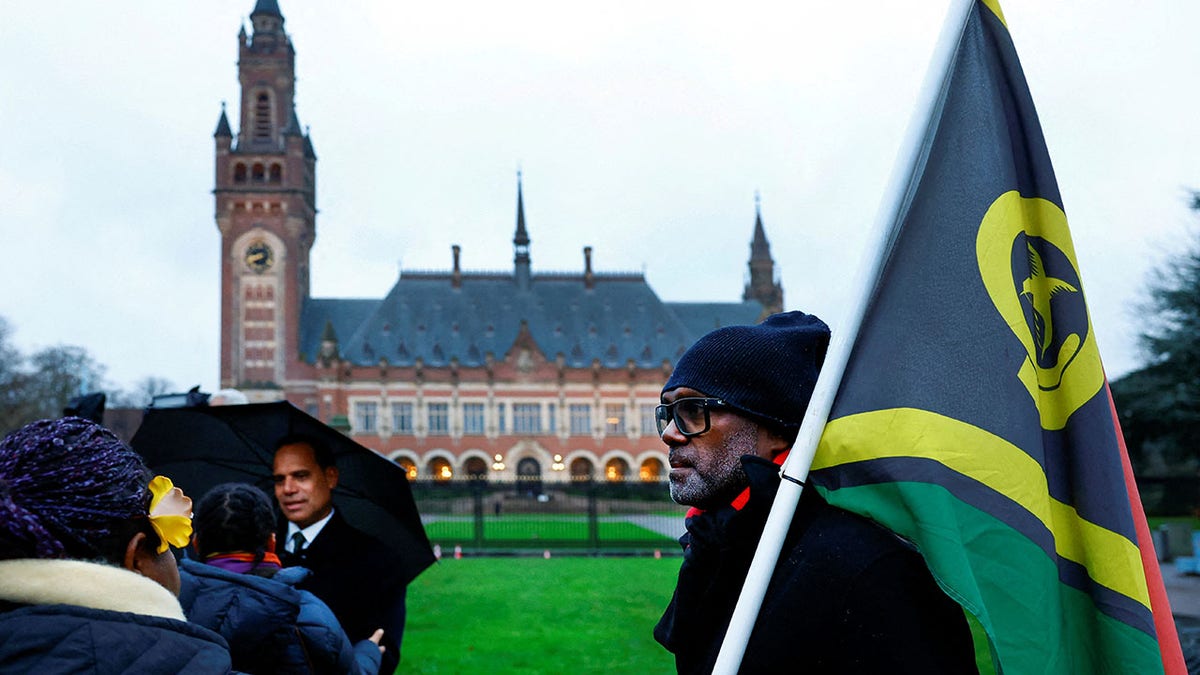
Tuvalu delegation arrives for the United Nations’ top court International Court of Justice (ICJ)’s public hearings in an advisory opinion case, that may become a reference point in defining countries’ legal obligations to fight climate change, in The Hague, Netherlands, December 2 2024. (REUTERS/Piroschka van de Wouw/File Photo)
«This is a victory for our planet, for climate justice, and for the power of young people to make a difference,» he said. «The world must respond.»
Wednesday’s ruling was hailed by a number of small nation states.
«I didn’t expect it to be this good,» said Ralph Regenvanu, the climate minister for the Pacific island nation of Vanuatu.
CLICK HERE TO GET THE FOX NEWS APP
Many developing nations and small island states have said they are at great risk from rising sea levels. Some have sought clarification from the court after the 2015 Paris Agreement failure to curb the growth of global greenhouse gas emissions.

 POLITICA2 días ago
POLITICA2 días ago🗳️ El chamuyo de las elecciones en la Provincia: se postulan, pero no a asumen

 POLITICA2 días ago
POLITICA2 días agoFuerte malestar en la CGT por la ausencia de gremialistas en las listas bonaerenses del peronismo

 CHIMENTOS1 día ago
CHIMENTOS1 día agoEl desgarrador testimonio del hermano de Locomotora Oliveras: “El daño es irreversible, solo puede vivir con respirador”

























